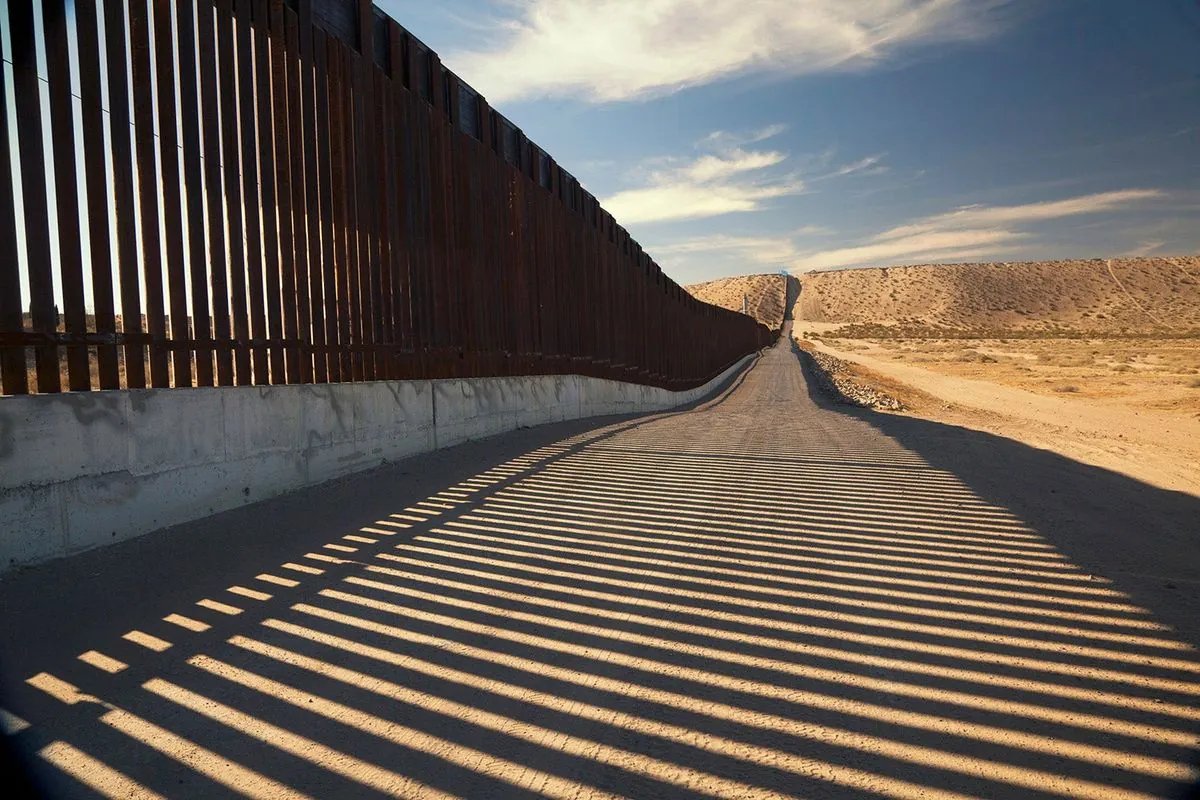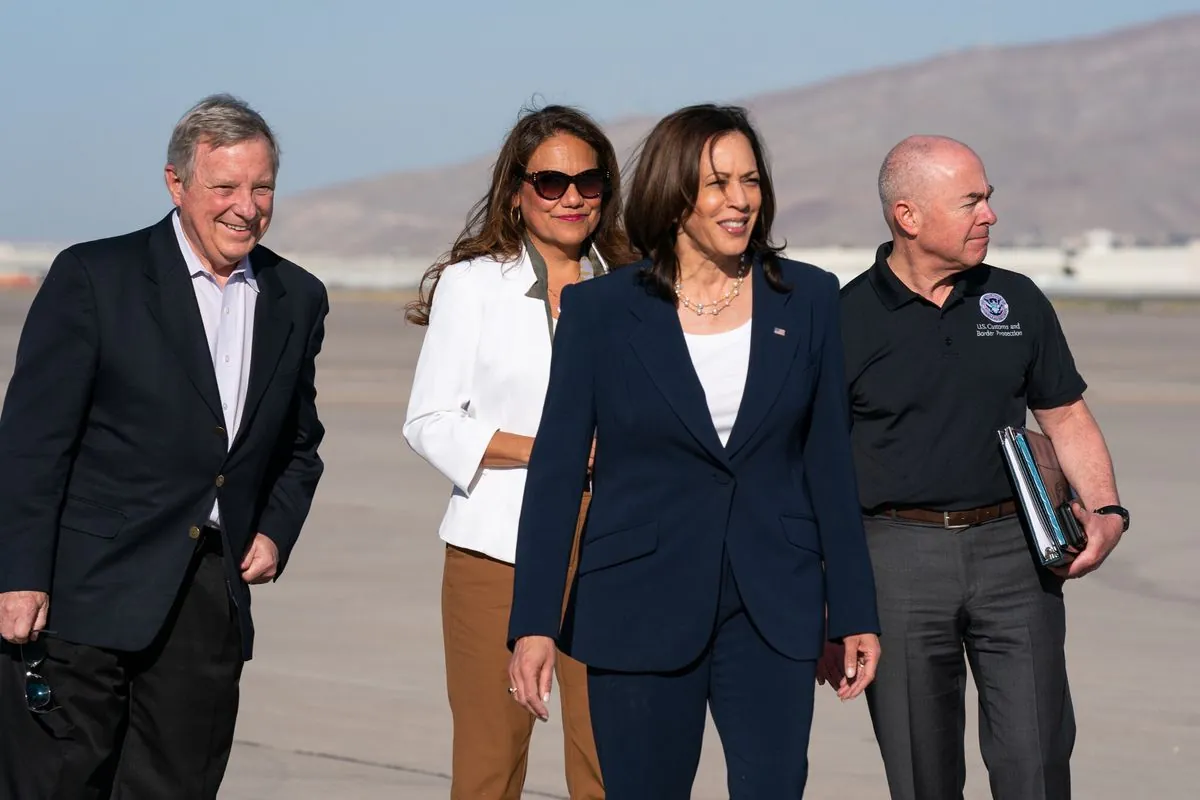Harris and Trump Clash on Immigration Policies Ahead of November Election
Vice President Harris focuses on border security and reform, while former President Trump promises mass deportations. The contrasting approaches highlight immigration as a key election issue.

As the November 2024 election approaches, immigration has emerged as a pivotal issue, with Kamala Harris and Donald Trump presenting starkly different visions for the nation's approach to border control and migrant management.
Vice President Harris, the Democratic presidential nominee, is expected to outline her immigration strategy during her first border visit of the campaign on September 27, 2024. Her plan reportedly includes tightening asylum regulations and extending restrictions implemented by the Biden administration. This approach reflects the challenges faced by the current administration, which initially promised a more compassionate immigration policy but has since adopted a stricter stance in response to record-high border crossings in December 2023.
Harris's background as California's attorney general has shaped her focus on border security and combating drug smuggling. She has emphasized her experience in prosecuting gangs involved in cross-border narcotics and human trafficking. The vice president has also voiced support for comprehensive immigration reform, including pathways to citizenship for undocumented immigrants, particularly those who arrived as children.

"I would bring back that bill and sign it into law."
In contrast, Donald Trump has made immigration a cornerstone of his campaign, promising the largest domestic deportation effort in U.S. history if re-elected. This echoes his 2016 campaign rhetoric, although during his presidency, annual deportations never exceeded 350,000 – significantly lower than the peak of 432,000 in 2013 under the Obama administration.
Trump's plans include using the National Guard for migrant roundups and invoking the Alien Enemies Act of 1798. He also intends to reinstate policies from his first term, such as the Remain in Mexico program and Title 42, which restricted immigration on public health grounds. Additionally, Trump has proposed ending birthright citizenship for children of undocumented immigrants and implementing new "ideological screening" for immigrants.
The debate over immigration policy is not new in American history. The U.S. Border Patrol, established in 1924, has been at the forefront of enforcing changing immigration laws. Significant legislation like the Immigration and Nationality Act of 1965 and the Refugee Act of 1980 have shaped the country's approach to immigration and asylum. More recently, programs like DACA (Deferred Action for Childhood Arrivals), implemented in 2012, have addressed the status of undocumented immigrants brought to the U.S. as children.
As the election nears, both candidates will need to address the complexities of managing the approximately 1,954-mile U.S.-Mexico border while considering the historical context of U.S. immigration policy. From the Chinese Exclusion Act of 1882 to the processing of over 12 million immigrants at Ellis Island between 1892 and 1954, immigration has long been a defining issue in American politics and society.
The contrasting approaches of Harris and Trump highlight the ongoing debate over how to balance border security with America's tradition as a nation of immigrants. As voters prepare to make their choice, they will be weighing these differing visions for the future of U.S. immigration policy.


































